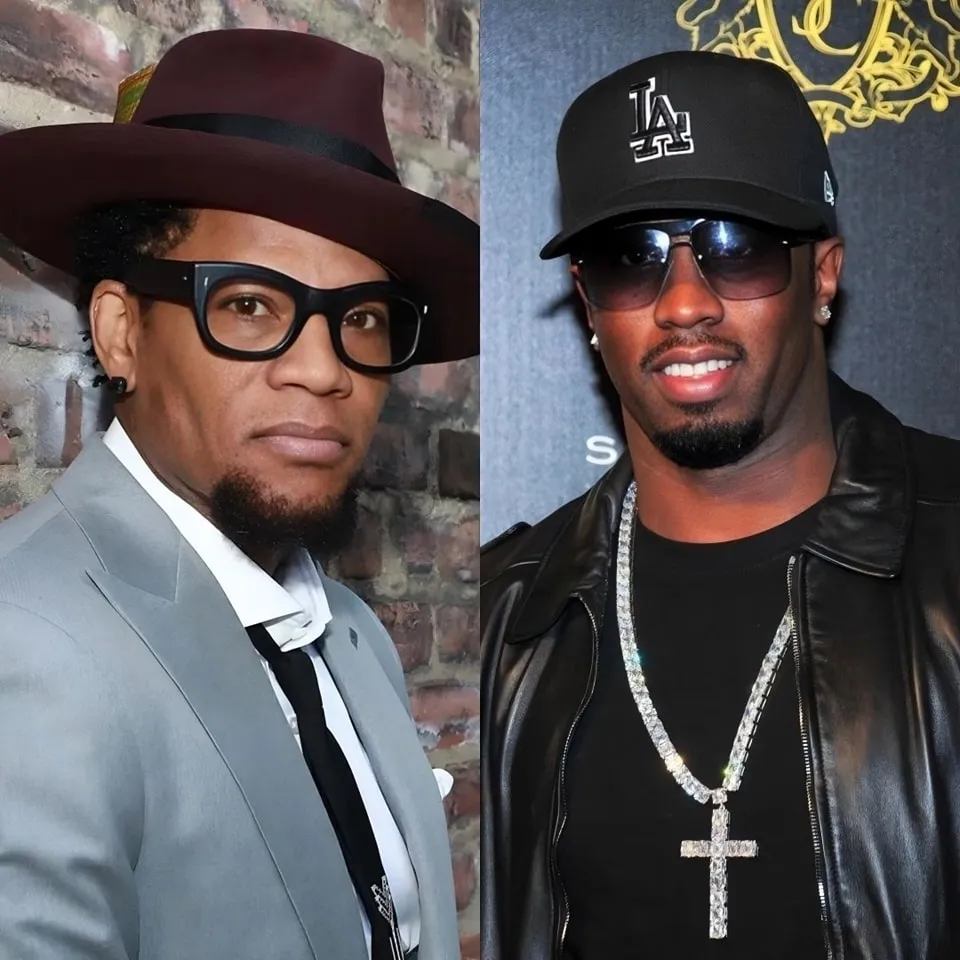In the world of entertainment, the recent controversy surrounding Sean “Diddy” Combs has dominated headlines. Allegations and accusations have surfaced that paint a troubling picture of the music mogul’s past. However, amidst the media frenzy, comedian and actor DL Hughley has sparked a different kind of conversation. Hughley recently criticized those who are only now speaking out about Diddy, declaring that “If you knew and stayed silent, you’re not a witness—you’re an accomplice.” This bold statement has reignited the debate about responsibility, complicity, and the culture of silence in the entertainment industry.

The Background: Allegations Against Diddy
Sean “Diddy” Combs, one of the most influential figures in the music industry, has recently come under fire as multiple allegations have been made against him. These claims, which span years, include accusations of misconduct and unethical behavior. As more details emerge, several individuals from the industry have begun to share their own stories and perspectives, some claiming that they had knowledge of Diddy’s actions long before the recent revelations.
This wave of confessions and disclosures has been met with mixed reactions. While some applaud the bravery of those coming forward, others question why these individuals remained silent for so long. It is in this context that DL Hughley’s comments have struck a chord.
DL Hughley’s Stance: Silence Equals Complicity
DL Hughley, known for his sharp wit and candid commentary on social and political issues, did not mince words when addressing the situation. Speaking out on social media, Hughley expressed his frustration with those who are only now speaking up about Diddy’s alleged wrongdoings. He argued that staying silent while knowing the truth makes one complicit in the actions they failed to condemn.
“If you knew and stayed silent, you’re not a witness—you’re an accomplice,” Hughley stated, making it clear that he believes there is a moral obligation to speak out against wrongdoing, especially when it involves serious allegations like those being made against Diddy. According to Hughley, silence in the face of such behavior is not neutral; it is an endorsement, a passive form of enabling the misconduct to continue.
The Culture of Silence in the Entertainment Industry
Hughley’s remarks tap into a broader issue that has long plagued the entertainment industry: the culture of silence. For decades, the industry has been criticized for its tendency to protect powerful figures, often at the expense of those who are vulnerable or victimized. This culture of silence has allowed many individuals to escape accountability, as those who knew of their actions chose to remain quiet out of fear, loyalty, or self-preservation.
The #MeToo movement, which gained momentum in 2017, began to break down this culture, encouraging survivors and witnesses to come forward with their stories. However, as Hughley’s comments suggest, there is still a long way to go in holding those who enable misconduct accountable. The distinction between being a witness and being an accomplice is crucial in this context. Witnesses observe; accomplices, through their silence or inaction, contribute to the perpetuation of harm.
Public Reaction: A Divided Opinion
As with many of Hughley’s statements, his criticism of those speaking out now has garnered both support and backlash. Supporters of Hughley’s stance argue that he is right to call out those who remained silent for years, especially if they had the power or platform to make a difference. They contend that silence in the face of wrongdoing is a form of complicity, and that those who knew about Diddy’s alleged behavior should have spoken up sooner.
On the other hand, critics of Hughley’s remarks argue that it’s not always easy or safe to speak out, particularly in an industry where power dynamics are heavily skewed in favor of influential figures like Diddy. They point out that fear of retaliation, career damage, or personal harm can prevent individuals from coming forward, even if they know about wrongdoing. For these critics, Hughley’s comments overlook the complexities of why people may choose to remain silent.
The Ethical Dilemma: When to Speak Out
Hughley’s critique raises important ethical questions about when and how individuals should speak out against misconduct. In an industry where careers can be destroyed with a single accusation, the decision to come forward is fraught with risks. Yet, as Hughley argues, the cost of silence can be even greater, allowing harmful behavior to continue unchecked.
This ethical dilemma is not limited to the entertainment industry; it is a challenge faced in many sectors. The question of whether to speak out or stay silent is one that many people grapple with, often balancing their own safety and well-being against the need for justice and accountability.
Moving Forward: Accountability and Change
As the allegations against Diddy continue to unfold, the conversation around accountability and the culture of silence in the entertainment industry is likely to intensify. Hughley’s comments serve as a reminder that complicity through silence is a serious issue that needs to be addressed. For meaningful change to occur, it is not enough to call out wrongdoing after the fact; there must be a commitment to speaking out against it as it happens.